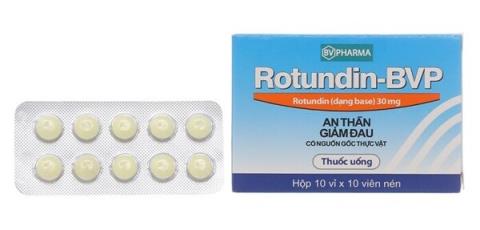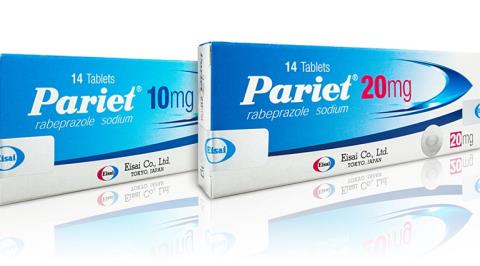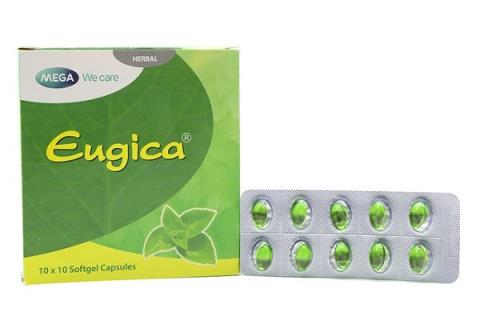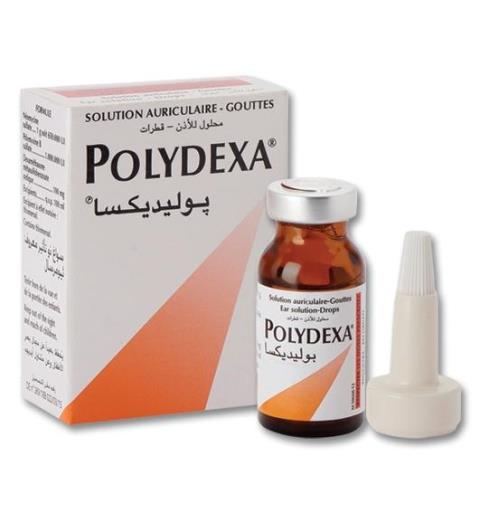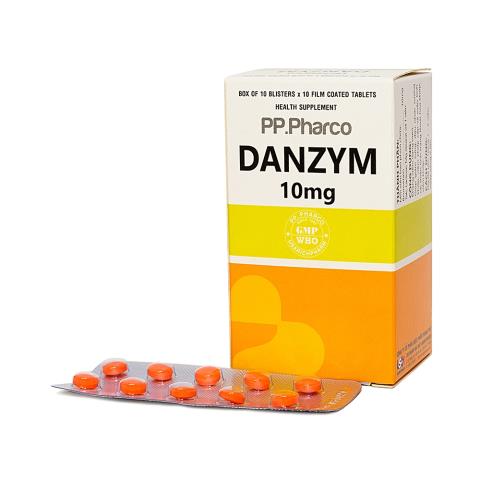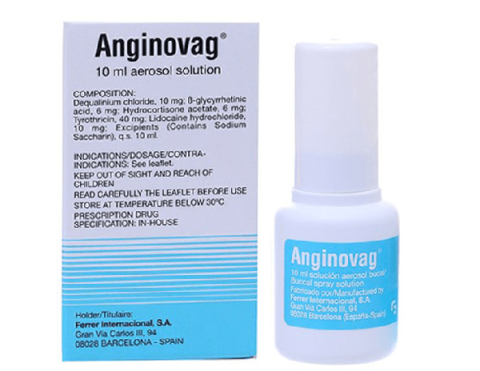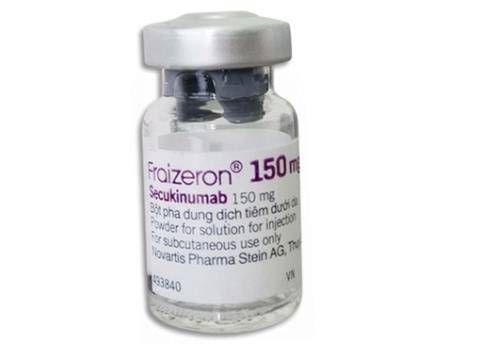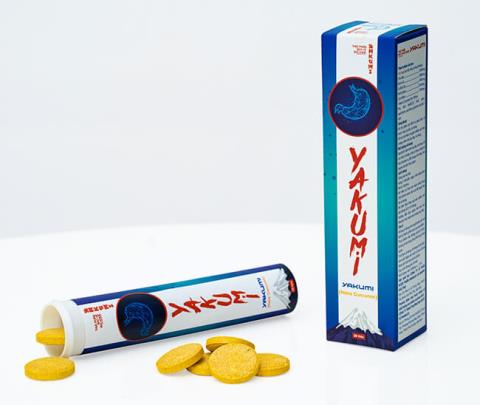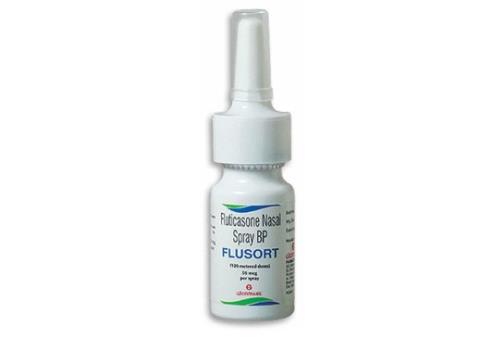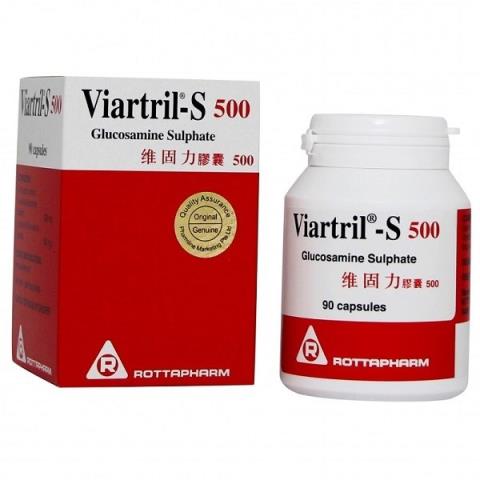What is Pariet (rabeprazole)? How to use the drug to achieve the effect? What should be kept in mind when taking the drug? Let's analyze the article with SignsSymptomsList below to understand deeply about the drug Pariet (rabeprazole)!
Active ingredient: rabeprazole.
Similar ingredient names: Angati 20; Anrbe 20; Apbezo; Atproton; Barole; Bluesana; Cadirabe 20; Utrazo 10; Veloz 20; Zechin Enteric Coated; Zolinova-20; Zorab.
content
1. What is Pariet (rabeprazole)?
Rabeprazole inhibits gastric secretion both basal and stimulated by inhibiting the enzyme H+/K+ -ATPase in parietal cells of the gastric mucosa. Specifically:
- This enzyme is considered to be the acid, hydrogen or proton pump in parietal cells, so rabeprazole is considered a proton pump inhibitor.
- The job of rabeprazole is to bind to this enzyme to stop the final stage of gastric secretion.
2. Indications for the drug Pariet (rabeprazole)
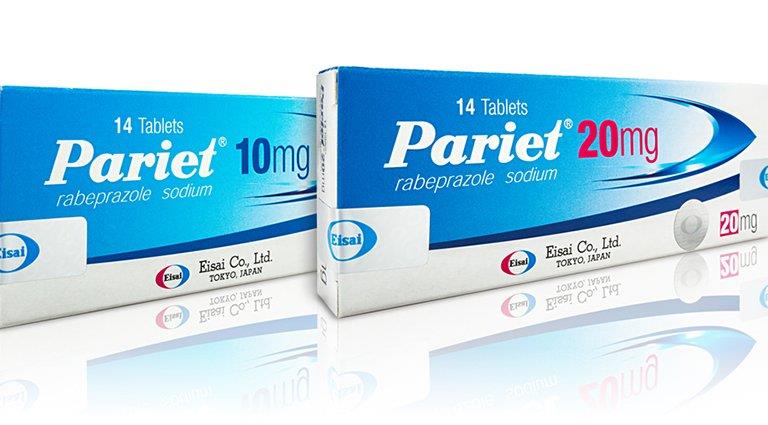
In addition, the drug can also be combined with appropriate antibiotics to kill H. pylori in patients with duodenal ulcer.
3. In case of not taking the drug Pariet
Patients who are allergic to rabeprazole , benzimidazole derivatives (lanzoprazole, omeprazol, pantoprazol) or to any of its ingredients.
4. How to use / dose of Pariet
4.1. How to use
- Use: Swallow the tablet whole, do not chew, crush or break the tablet.
- Time of use: It is best to drink at least 30 minutes before eating so that the drug can work best.
4.2. Dosage
Dosage is divided according to the following cases:
Acute duodenal ulcer:
- 20 mg/time/day in the morning.
- Drink for 4 weeks if the ulcer is not completely healed.
Benign acute gastric ulcer
- 20 mg/time/day x 6 weeks in the morning.T
- In case the ulcer has not healed, continue to use for another 6 weeks.
Gastroesophageal reflux – esophageal ulcer or scratch symptoms
- 20 mg / time / day x 4 - 8 weeks.
Symptomatic treatment of gastroesophageal reflux disease - esophagitis without esophagitis
- The recommended dose is 10 mg once daily for up to 4 weeks, then 10 mg once daily as needed.
- If symptoms are not controlled within 4 weeks, the patient should be re-examined.
Zollinger-Ellison syndrome
- The starting point is 60 mg/time/day.
- Up to 120 mg/day, in 2 divided doses according to individual patient needs.
- A once-daily dose of up to 100 mg may be prescribed.
Duodenal ulcer and benign gastric ulcer associated with H. pylori infection
- Use according to the treatment regimen of the doctor.
5. Side effects when taking the drug Pariet
- Chest pain
- Chills, fever
- Increase liver enzymes
- Restless, sleepy
- Sore throat, rhinitis, cough
- Urinary tract infection
- Muscle pain, cramps, joint pain
- Insomnia, headache, dizziness
- Dry mouth, belching, itching, erythema
- Back pain, weakness, flu-like symptoms
- Diarrhea , nausea, abdominal pain, constipation, flatulence, unexplained pain
6. Drug interactions with Pariet (rabeprazole)

Rabeprazole may affect certain medications, such as:
- Erlotinib, nelfinavir, delavirdin, posaconazole
- Ketoconazole or itraconazole: may reduce absorption
- Methotrexate, saquinavir, voriconazole: increased effect/concentration.
- Atazanavir 300 mg/ ritonavir 100 mg: a sharp decrease in atazanavir concentrations.
- Chlorpidogrel, dabigatran, etexilate, dasatinib, erlotinib, indinavir, iron salts, itraconazole, ketoconazole, mesalamin, mycophenolate, nelfinavir: decreased effect/concentration.
7. Precautions when taking Pariet (rabeprazole)
Patients should be monitored periodically when treatment lasts more than 1 year with rabeprazole . The drug should not be used on young children. Besides, it is necessary to exclude the possibility that the patient has malignancy before treatment.
Potential health problems that can occur with the medication include:
- Hematopoietic disorders: Hematopoietic disorders (thrombocytopenia and neutropenia) have been reported . In most cases, no cause can be found, but these disorders are not serious and resolve with discontinuation of use.
- Liver enzymes: Liver enzyme abnormalities have been reported from clinical trials. However, if there is no other cause, the disorder is not serious and will go away when the drug is stopped.
- Hepatic impairment: Extreme caution must be exercised when administering rabeprazole sodium for the first time to patients with severe hepatic impairment because of insufficient clinical data.
- Gastrointestinal infections: Increased risk of gastrointestinal infections with Salmonella, Campylobacter and Clostridium difficile when taking this medicine.
- Intolerance: Do not use rabeprazole in patients with hereditary galactose intolerance or impaired absorption of glucose and galactose.
8. Pariet for pregnant and lactating women
8.1. Pregnant women
- Contraindicated for pregnant women
- There is no evidence that the drug is safe for pregnant women
8.2. Breastfeeding period
- Contraindicated for mothers during lactation
- It is not known whether rabeprazole is excreted in milk
Therefore, the drug should not be used in this population because of the risk of harm to the fetus.
9. Treatment of an overdose of Pariet (rabeprazole)
There are currently no reports of clinical signs or symptoms in cases of overdose. Therefore, there is still no specific antidote in case of overdose.
Rabeprazole is highly protein bound and therefore cannot be eliminated by dialysis. In case of overdose, symptomatic and supportive treatment should be given priority.
10. What to do when you miss a dose of Pariet (rabeprazole)
- As soon as you remember, you need to use it immediately.
- If it is almost time for your next dose, skip it and follow your dosing schedule.
11. How to store Pariet
- Store at a suitable temperature, preferably no more than 25 C
- Keep medicine out of reach of children and pets
- Do not expose the medicine to direct light and moisture
For expired medicine, you should throw it away and not use it for therapeutic purposes. However, you need to ask the pharmacist about how to dispose of expired medicine before releasing it into the environment.
Pariet is a brand-name drug containing the active ingredient rabeprazole, which is used in cases of acute gastric ulcer, gastroesophageal reflux disease, .. Because the drug is an inhibitor of acid secretion, long-term use can cause many effects. Side effects such as gastrointestinal infections, vitamin deficiencies due to reduced absorption. Therefore, it is advisable to see a gastroenterologist for advice and support during treatment.
Pharmacist Nguyen Ngoc Cam Tien
